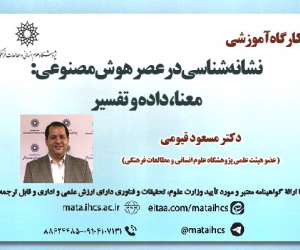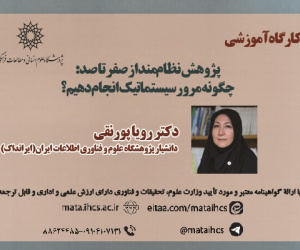بررسی فقهی و حقوقی موقوفات در جنگل های شمال ایران (مقاله علمی وزارت علوم)
درجه علمی: نشریه علمی (وزارت علوم)
آرشیو
چکیده
در فقه اسلامی، در خصوص من ابع طبیع ی و به ویژه جنگل ها و مرات ع احکام خاصی وضع شده است. از نظر اکثریت فقهای شیعه، منابع طبیعی از جمله کوه ها، دره ها، نوک قله ها، نیزارها مراتع و جنگل ها از جمله انفال بوده، در مالکیت امام (ع) هستند و مرتع و جنگل وق ف شده در صورتی صحیح و معتبر است که انسان در به وجودآمدن آن جنگل و مرتع دخیل باشد. ساکنین جنگل های شمال ایران و دیگر نقاط جنگلی کشور در طول قرون متمادی و به استناد تاریخ و اشیای بسیار قدیمی کشف شده در جای جای استان های شمالی ایران و دیگر مکان های مشابه، دارای سابقه سکونت چندهزارساله در دل جنگل ها بوده اند و خود را مالک آن مناطق می دانستند. این احساس مالکیت در جنگل باعث می شد برخی از مؤمنین اراضی جنگلی تحت کنترل خود را برای امور مختلف وقف می نمودند. با وضع قانون ملی شدن جنگل ها چالش وضعیت وقف این اراضی مطرح شد، لذا قانون، اراضی موقوفه پیش از تصویب این قانون را پذیرفت، اما موقوفات پس از آن را به دلیل وقف مال غیر توسط دیگری نپذیرفت. این پژوهش از نوع کاربردی بوده و با استناد به منابع فقهی و حقوقی به روش تحلیل محتوا به بررسی صحت موقوفات اراضی جنگلی پس از تصویب قانون ملی شدن جنگل ها پرداخته است. نتیجه حاصل از پژوهش آن است که سنت وقف و نذورات در ایران به قدمت تاریخ ساکنین آن است. ازآنجایی که مردم یکتاپرست ایران خود را مالک محدوده جنگلی تحت تصرف خویش می دانسته اند؛ لذا اقدام به وقف نمودن املاک و مستثنیات خویش می نموده اند. در ای ن ص ورت از نگاه فق ه و حق وق موضوعه، نبای د ب ه بهان ه انف ال ب ودن یا ملی شدن مرات ع و جنگل ها، به وقف بودن زمین های موجود در این محدوده که از لحاظ فقه و قوانین وضع شده معاصر به صورت صحیح واقع شده است لطمه ای وارد نمود.A Fiqhi and Legal Examination of Endowments (Waqf) in the Northern Forests of Iran
In Islamic jurisprudence, specific rulings have been established regarding natural resources, particularly forests and rangelands. According to the majority of Shia jurists, natural resources including mountains, valleys, hilltops, marshes, rangelands, and forests are considered part of the "public goods" (anfal) and are under the ownership of the Imam (peace be upon him). A waqf (endowment) of rangeland or forest is only valid and legitimate if the person establishing the waqf was involved in the creation of that forest or rangeland. The inhabitants of the northern forests of Iran and other forested areas of the country have had a centuries-old history of residence in the forests, as evidenced by historical records and ancient artifacts discovered throughout the northern provinces and similar locations. This sense of ownership over the forested lands led some believers to endow the forest lands under their control for various purposes. However, through the enactment of the Law on the Nationalization of Forests, the status of these forest land endowments was challenged. The law recognized the validity of endowments established prior to the enactment of this law but did not acknowledge endowments created thereafter, on the grounds that they involved the endowment of property that did not belong to the endower. This applied research, based on Fiqhi and legal sources and recruiting content analysis, examines the validity of endowments of forest lands after the enactment of the Law on the Nationalization of Forests. Findings indicate that the tradition of waqf and votive offerings in Iran is as old as the history of its inhabitants. Since the monotheistic people of Iran considered themselves the owners of the forested areas under their control, they endowed their properties within these areas. In this case, from the perspective of Fiqh and common law, the endowment of lands within these areas, which have been validly established according to Fiqh and contemporary legislation, should not be undermined on the pretext of them being part of the "public goods" or the nationalization of rangelands and forests.







